Yanyi Guo
Resource Allocation and Workload Scheduling for Large-Scale Distributed Deep Learning: A Survey
Jun 12, 2024
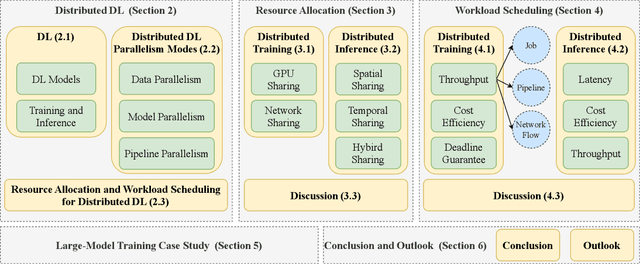
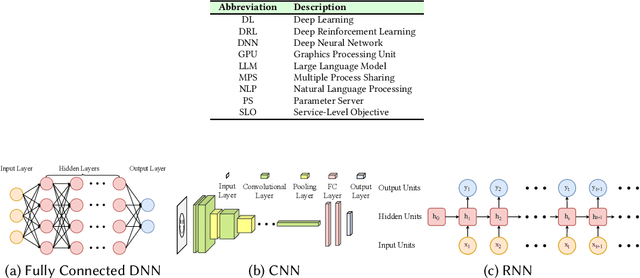

Abstract:With rapidly increasing distributed deep learning workloads in large-scale data centers, efficient distributed deep learning framework strategies for resource allocation and workload scheduling have become the key to high-performance deep learning. The large-scale environment with large volumes of datasets, models, and computational and communication resources raises various unique challenges for resource allocation and workload scheduling in distributed deep learning, such as scheduling complexity, resource and workload heterogeneity, and fault tolerance. To uncover these challenges and corresponding solutions, this survey reviews the literature, mainly from 2019 to 2024, on efficient resource allocation and workload scheduling strategies for large-scale distributed DL. We explore these strategies by focusing on various resource types, scheduling granularity levels, and performance goals during distributed training and inference processes. We highlight critical challenges for each topic and discuss key insights of existing technologies. To illustrate practical large-scale resource allocation and workload scheduling in real distributed deep learning scenarios, we use a case study of training large language models. This survey aims to encourage computer science, artificial intelligence, and communications researchers to understand recent advances and explore future research directions for efficient framework strategies for large-scale distributed deep learning.
Communication-Efficient Large-Scale Distributed Deep Learning: A Comprehensive Survey
Apr 09, 2024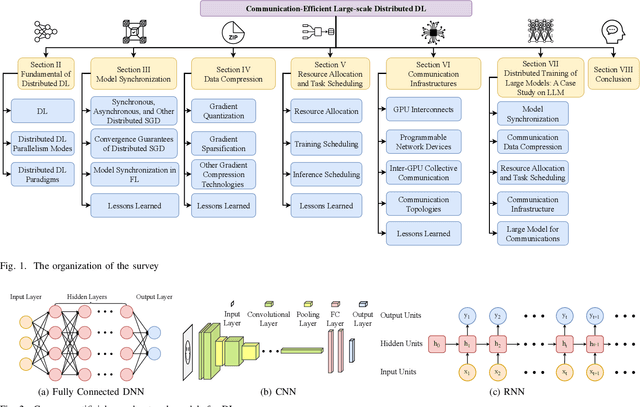
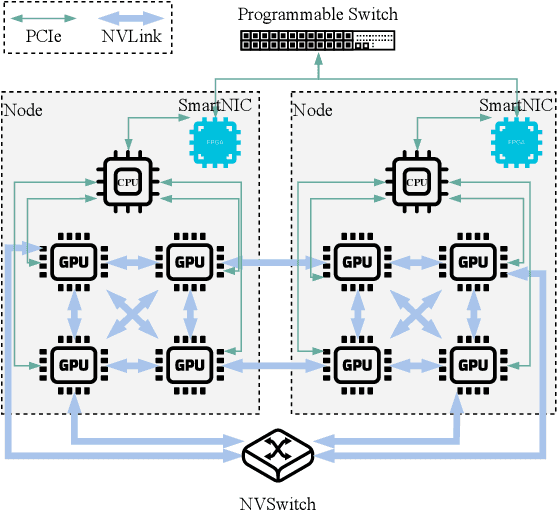
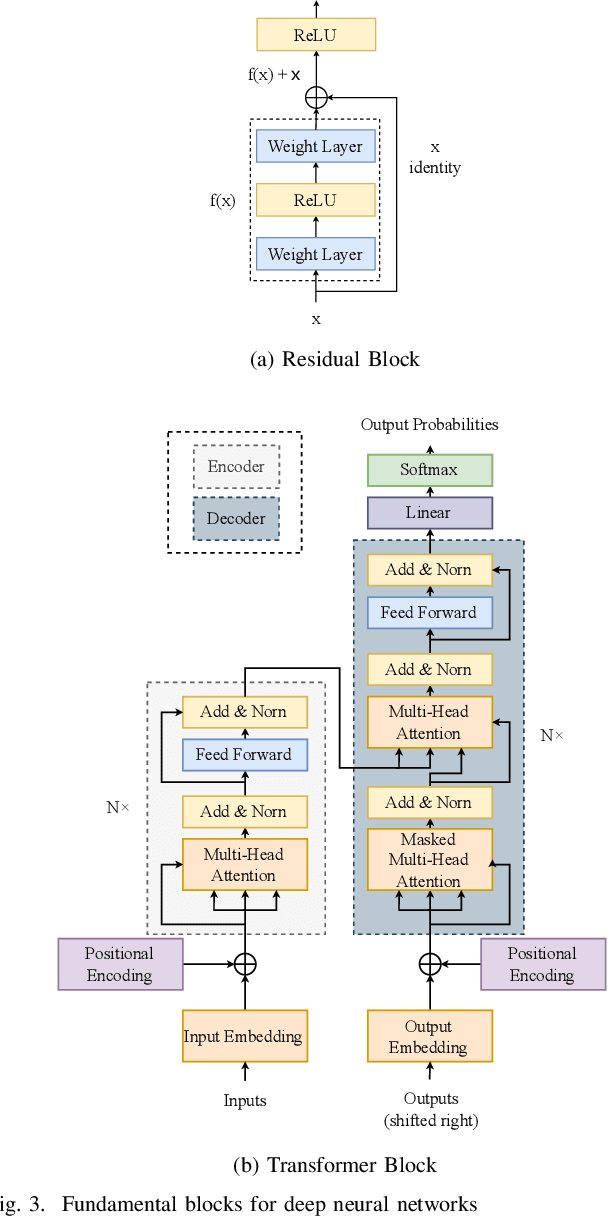

Abstract:With the rapid growth in the volume of data sets, models, and devices in the domain of deep learning, there is increasing attention on large-scale distributed deep learning. In contrast to traditional distributed deep learning, the large-scale scenario poses new challenges that include fault tolerance, scalability of algorithms and infrastructures, and heterogeneity in data sets, models, and resources. Due to intensive synchronization of models and sharing of data across GPUs and computing nodes during distributed training and inference processes, communication efficiency becomes the bottleneck for achieving high performance at a large scale. This article surveys the literature over the period of 2018-2023 on algorithms and technologies aimed at achieving efficient communication in large-scale distributed deep learning at various levels, including algorithms, frameworks, and infrastructures. Specifically, we first introduce efficient algorithms for model synchronization and communication data compression in the context of large-scale distributed training. Next, we introduce efficient strategies related to resource allocation and task scheduling for use in distributed training and inference. After that, we present the latest technologies pertaining to modern communication infrastructures used in distributed deep learning with a focus on examining the impact of the communication overhead in a large-scale and heterogeneous setting. Finally, we conduct a case study on the distributed training of large language models at a large scale to illustrate how to apply these technologies in real cases. This article aims to offer researchers a comprehensive understanding of the current landscape of large-scale distributed deep learning and to reveal promising future research directions toward communication-efficient solutions in this scope.
 Add to Chrome
Add to Chrome Add to Firefox
Add to Firefox Add to Edge
Add to Edge